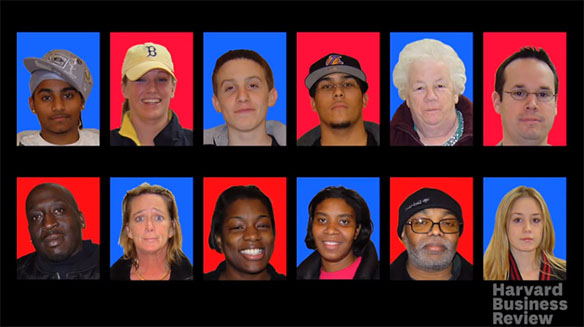In this 4 1/2-minute video, Harvard business professor Michael Norton describes a study testing people’s willingness to talk about race. He made volunteers play a simple game. One picked a face from a field of 12 and the other asked yes/no questions in order to guess who they had in mind. Among the field of faces, six were white and six were black.

Even though asking if a person was black or white would eliminate half of the contenders, 57 percent of people did not mention race. If the other volunteer was black, they were even less likely to mention it. In that scenario, 79 percent didn’t ask if the face they had in mind was white or black.
They reproduced the experiment with children and found that, while little kids would ask about race, by nine or 10, they had stopped. The little kids often beat the older kids at the game, given that race was a pretty good way to eliminate faces.
Interestingly, the people who didn’t mention race were probably trying to appear not racist, but their decision had the opposite effect. The partners of people who didn’t mention race rated them as more racist than the partners of people who did. Bringing up race was, in fact, a way to signal comfort with racial difference.
For the whole story, here’s the video:
http://youtu.be/RG6cVIDneis
This post originally appeared on Sociological Images, a Pacific Standard partner site.




